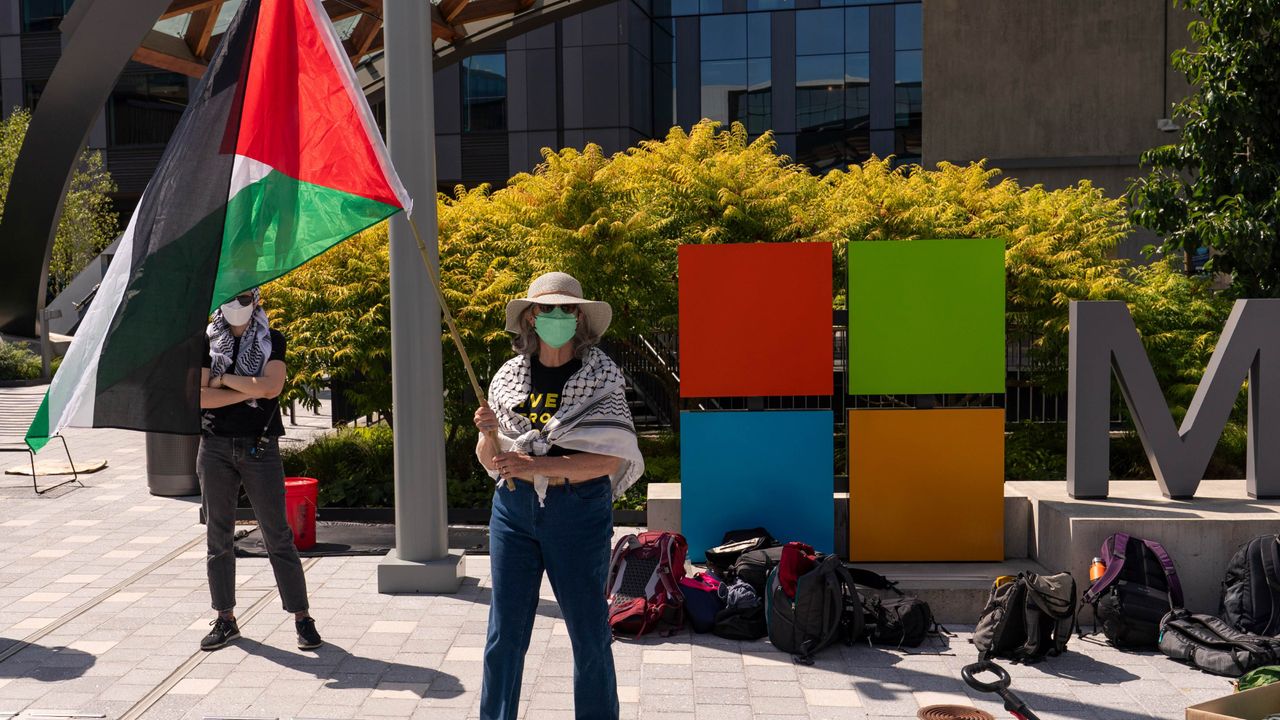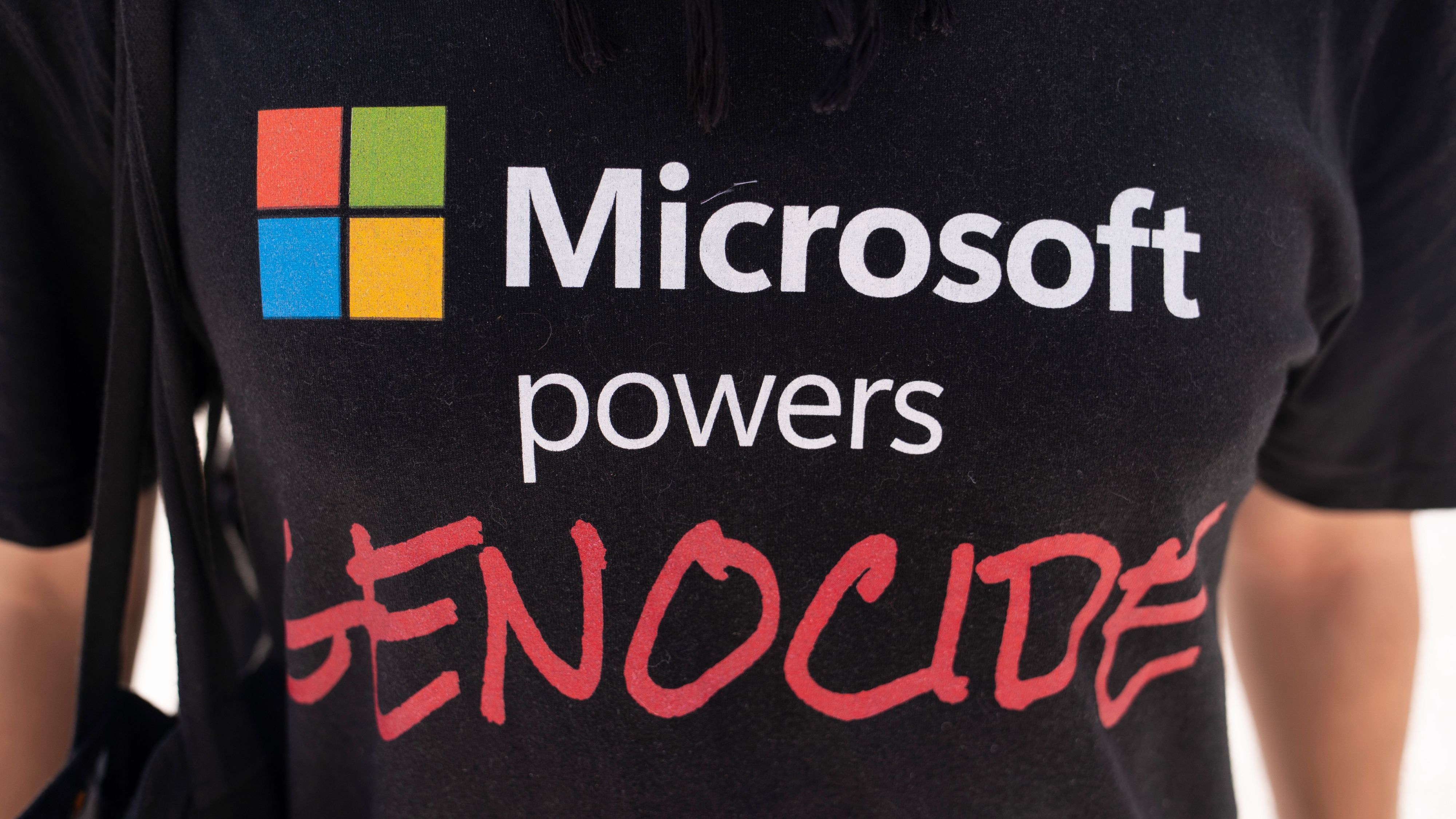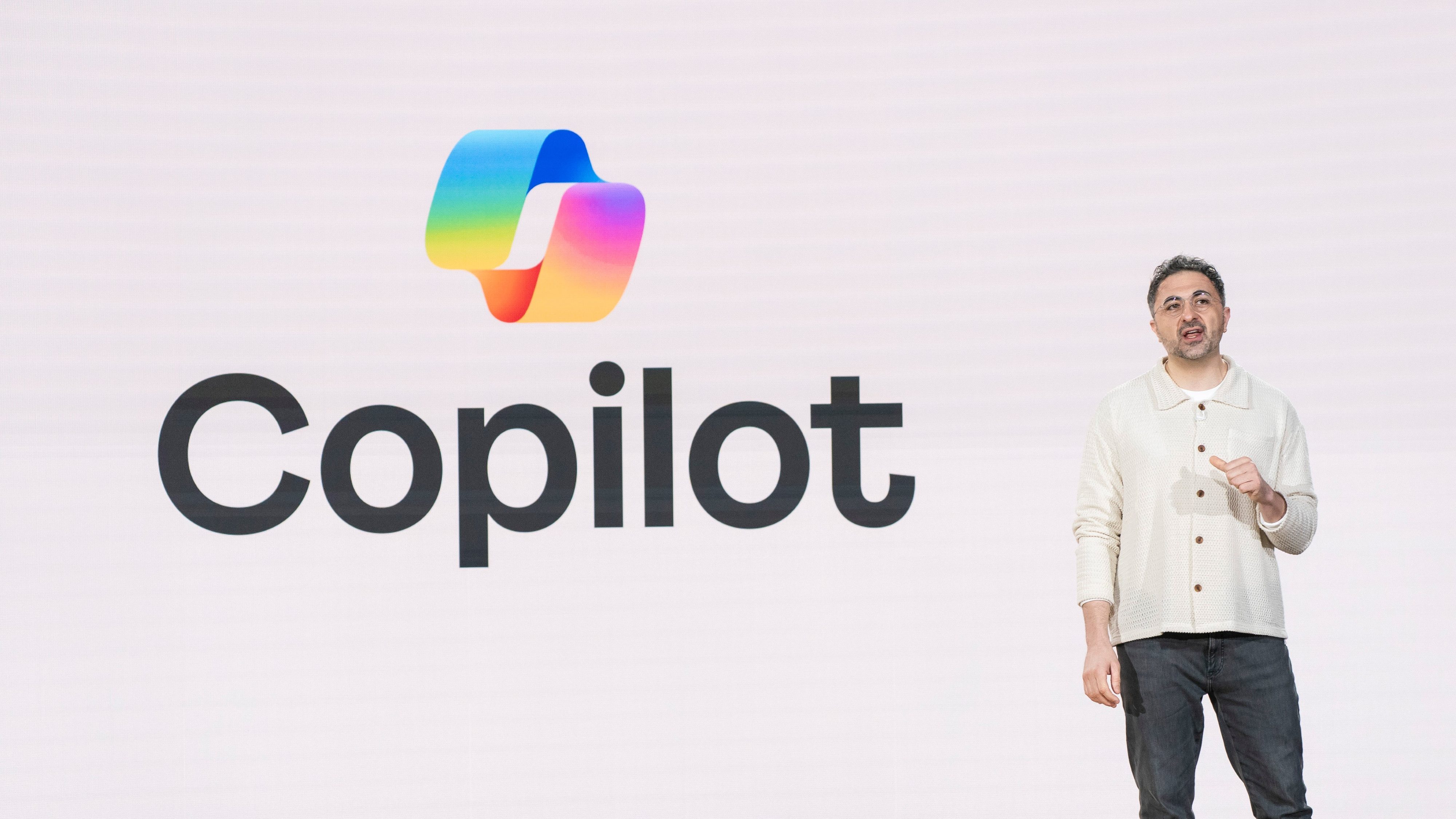
A protest on Microsoft's campus in Redmond, Washington, resulted in at least 18 people being arrested on Wednesday, August 21, 2025. Police responded to a large gathering of protesters, according to KOMO News.
Protests began on Tuesday when a group that included current and former Microsoft employees converted part of Microsoft's headquarters into a "Liberated Zone." The protest, like several others held against Microsoft this year, focused on the tech giant providing services to the Israeli government and military.
Based on statements by Microsoft, the protesters left peacefully on Tuesday and then returned on Wednesday.
According to a statement by the police, the protesters "became aggressive."
Protesters had allegedly poured red paint over a Microsoft sign, blocked a pedestrian bridge, and formed a barrier out of tables and chairs.
Microsoft shared a statement on the protests, which spanned multiple days:
"Yesterday, approximately 35 protesters gathered and protested on the Microsoft campus. When local police officers informed them that this was not permitted on private property, they left. Today, the group returned and engaged in vandalism and property damage. They also disrupted, harassed, and took tables and tents from local small businesses at a lunchtime farmer’s market for employees."
The Verge confirmed that among those arrested was Microsoft software engineer Anna Hattle. Former Microsoft employees Hossam Nasr and Vaniya Agrawal were also arrested on Wednesday.
Why are people protesting Microsoft?

Protests against Microsoft center around the tech giant's connection to the Israeli government and military. Microsoft provides several services to the Israeli Ministry of Defense (IMOD), including Azure cloud services, Azure AI services, and language translation.
Microsoft has specified that its relationship with IMOD is "structured as a standard commercial relationship." The company conducted an internal assessment and had an external review, both of which found that IMOD had not broken Microsoft's terms of service.
Many of the protests are connected to No Azure for Apartheid, a group that consists of both current and former Microsoft employees.
Protests against Microsoft have increased in frequency and scale over recent months. In April, protesters interrupted Microsoft's 50th Anniversary Event and said, "all of Microsoft has blood on its hands."
Soon after that incident, it was determined the protesters were Microsoft employees. They were later fired due to "acts of misconduct."
In May, Microsoft blocked employees from sending emails that mention Palestine or Gaza.
A group of over 60 Microsoft shareholders filed a proposal to have Microsoft publish a report on the company's "human rights due diligence processes" relating to the use of Microsoft cloud products and services.
No Azure for Apartheid has a petition signed by over 1,500 Microsoft employees.
Brian Eno, the creator of the Windows 95 startup sound, also spoke out against Microsoft. Eno also shared that the money originally received for creating the startup sound would be used to help victims in Gaza.
Report by The Guardian prompts further review

On August 6, The Guardian, in partnership with +972 Magazine and Local Call, shared the results of an investigation that revealed the Israeli military relied on Microsoft cloud service to store information. "A million calls an hour" were reportedly recorded and stored in Azure.
That report claims that Azure "facilitated the preparation of deadly airstrikes and has shaped military operations in Gaza and the West Bank."
Microsoft technology was not supposed to be used to identify targets for lethal strikes, according to a Microsoft source that spoke with The Guardian. But other sources of the outlet claim phone calls stored in Azure were used to "research and identify bombing targets in Gaza."
Microsoft updated its blog post regarding the use of its technology services in Israel and Gaza on August 15:
"Microsoft Corporation announced today that it is undertaking a formal review of allegations reported by The Guardian on August 6, 2025, relating to usage of Microsoft Azure by a unit of the Israeli Defense Forces (IDF). The Guardian, on that date, reported that multiple individuals have asserted that the IDF is using Azure for the storage of data files of phone calls obtained through broad or mass surveillance of civilians in Gaza and the West Bank. Microsoft’s standard terms of service prohibit this type of usage."
The previous review did not find any violations of Microsoft's terms by the Israeli Defense Force (IDF). But Microsoft has since expanded its review in response to the report by The Guardian.
An unnamed Microsoft spokesperson shared the following statement with KOMO News:
“The company announced last week that it is pursuing a thorough and independent review of new allegations first reported earlier this month about the purported use of its Azure platform in Israel. Microsoft will continue to do the hard work needed to uphold its human rights standards in the Middle East, while supporting and taking clear steps to address unlawful actions that damage property, disrupt business or that threaten and harm others.”
Microsoft says it will share its findings once the review is complete.







